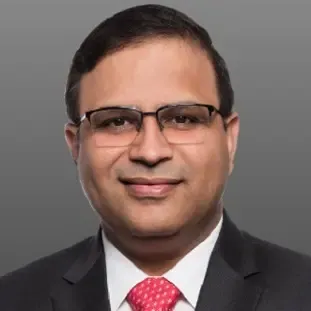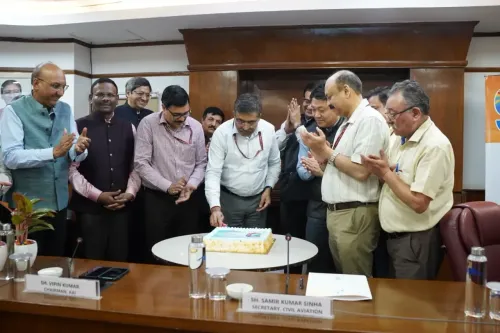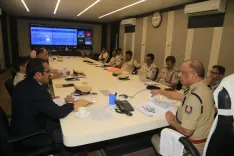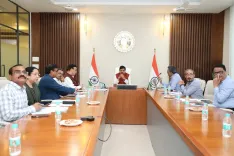How is Singapore PM Wong Strengthening Ties with FM Sitharaman?

Synopsis
Key Takeaways
- Strengthening of Comprehensive Strategic Partnership.
- Discussion on key sectors: trade, investment, fintech.
- Significant agreements expected to be signed.
- 60th anniversary of diplomatic relations.
- High-level delegation from Singapore.
New Delhi, Sep 2 (NationPress) On Tuesday, Singapore’s Prime Minister Lawrence Wong engaged with Finance Minister Nirmala Sitharaman to discuss ways to enhance the Comprehensive Strategic Partnership (CSP) in vital trade and investment sectors.
This visit marks Wong's inaugural trip to India as Prime Minister and comes during a significant period, being the 60th anniversary of diplomatic relations between India and Singapore. Accompanied by a high-profile delegation comprising his wife, cabinet ministers, and senior officials, Wong aims to solidify the strategic relationship.
The Finance Minister warmly welcomed Wong on this important occasion.
According to a statement from the Finance Ministry, "His visit emphasizes the ongoing dedication of both nations to further fortify their partnership."
Attending the meeting from Singapore were Jeffrey Siow, acting Minister for Transport and Senior Minister of State for Finance, and Gan Siow Huang, Minister of State for Foreign Affairs and Trade and Industry.
The discussions concentrated on enhancing the Comprehensive Strategic Partnership across critical domains such as trade, investment, fintech, skill development, sustainability, healthcare, and connectivity.
Both parties expressed their commitment to deepening collaboration in these areas, as stated by the ministry.
The visit is anticipated to culminate in the signing of several important agreements spanning sectors like finance, digital innovation, skill development, civil aviation, maritime cooperation, and space technology.
This meeting follows the third India-Singapore Ministerial Roundtable (ISMR) that took place in New Delhi on August 13, where ministers from both nations assessed advancements in cooperation under six essential pillars: Advanced Manufacturing, Connectivity, Digitalisation, Healthcare and Medicine, Skill Development, and Sustainability. Numerous new initiatives were identified to boost collaboration in these fields.









